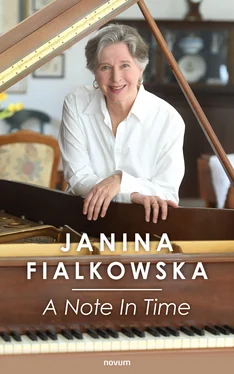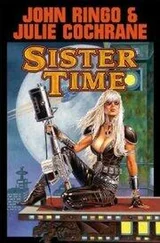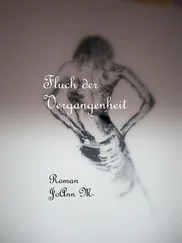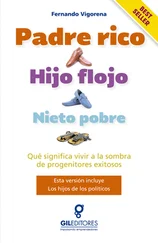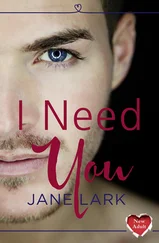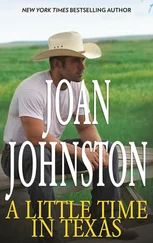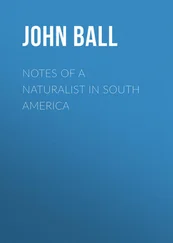On January 13th, 2002, I tried out this ferociously demanding Liszt program in front of a large group of friends in the concert hall at Irsee. The following day I traveled back to Connecticut alone to prepare for a month of concerts in North America. Harry was to join me the following week.
At this point my upper arm looked gigantic and was extremely stiff and sore. I decided to visit a chiropractor who had once helped me. He took one look at the swelling and made an appointment for me to visit a local orthopedic surgeon. I also decided to try acupuncture. For a few sessions long needles were stuck into my hands causing extreme pain and frightening the daylights out me. The acupuncturist assured me that the growth was diminishing inside. It was not; quite the contrary. The surgeon decided that I should have an MRI taken of my shoulder and upper arm. Out in Connecticut, they had the latest machine, not the old ersatz coffin version, so mercifully it wasn’t too claustrophobic since I could see out the sides; rather like having a very large hockey puck hanging over oneself.
Although the pain was a bit worrying, what with the upcoming, grueling schedule, I wasn’t at all concerned that whatever was wrong couldn’t be treated and rectified quickly. The absurd notion of cancer barely crossed my mind. My brain was too busy with the Liszt etudes and refused to be distracted by anything else.
The first inkling that things might not be quite so simple came with the results of the MRI and the doctor asking me in which hospital I would prefer to have my biopsy: the Memorial Sloan Kettering Cancer Center in New York City or the hospital at Yale University in New Haven. In my innocence I answered this serious question lightheartedly and without much thought, plumping for New York over New Haven because I thought it would be more amusing for Harry. The results had indicated that there was a large growth wrapped around my upper arm muscles and the doctor felt there was a certain amount of urgency involved. An appointment was made to meet Dr. Carol Morris the following Tuesday in New York. As one is wont to do, I immediately built up a picture of Dr. Morris: someone short, bespectacled, with black hair streaked with grey severely tied back in a bun, wrinkled forehead, bad teeth, in late middle age and, of course, brilliant. Except for the brilliant part, my imagination had gone badly awry. For it was not a gnome but a goddess who walked into the examining room where I sat joking and waiting with Harry that Tuesday. Young, tall, slender, fine-featured with the most beautiful, delicately formed hands, she entered the room surrounded by her acolytes, an aura of stillness and authority about her, like a high priestess. She was extremely serious, carefully explaining my options and strongly suggesting an immediate biopsy, warning me that even if I didn’t have cancer, the tumour (it was now officially called a tumour) should nevertheless be removed, and I would risk some damage to my arm muscles.
“How much damage?” I asked, “Would it affect my piano playing?” The answers were ambivalent.
I chose to believe that all would be well and was upset only because the biopsy was forcing me to cancel several concerts. Very early on it had been drummed into me that one never cancels concerts, that it was somehow unethical, so many of my concerts had been played with a raging fever or worse. And to lose a concert due to illness sometimes meant never being invited back to certain cities. The battle for my career had been hard fought and there hadn’t been a cancellation in over twenty years. It hadn’t been easy to reach the plateau of relative stability I now enjoyed, and I hated to risk jeopardizing it even by the loss of only a few engagements.
Dr. Morris was very serious and offered no optimistic platitudes. But I remained basically cheerful and almost without doubts. I blotted out the negatives. The concept that a cancerous tumour could exist in my arm with the power to damage my pianistic skills and consequently destroy my life seemed preposterous.
On the morning of January 31st, 2002, just over two weeks after I had played my Liszt recital in Germany, Harry drove me to the hospital. We had left our house in Connecticut at 5.30 a.m. and without any traffic to impede our progress we sped along the deserted Parkway in the steely grey light of pre-dawn, arriving in New York just as a winter storm began to blow in earnest. Neither of us had slept much the night before, mainly because we had to get up very early and, typically, had no faith in our alarm clocks. I still wasn’t particularly frightened by the pending surgical procedure: rather, I was fascinated by the whole experience.
At first, after I had checked in, signed various forms, submitted to the various tests and answered various questions, I sat quite happily with Harry in the waiting room observing the other patients. A very large family of Romanian descent sat huddled together at one end of the room. There were at least four generations present and they had brought along masses of delicious looking food, all carefully wrapped in aluminum foil and stuffed in large containers. They created a rather festive atmosphere in their corner, chatting and eating with enthusiasm, although I felt a little sorry for the grandmother in her hospital gown who was, of course, not allowed to partake of the feast. She was soon called to the operating room and the family left, probably to have breakfast nearby as their appetites seemed boundless.
In another corner a couple quietly intoned mantras. He was desperately ill, emaciated and with skin the color of parchment; I could hardly bear to look at him but, filled with guilt at being so healthy, I forced myself every so often to meet his eyes and proffer an encouraging smile.
Before long, though, everyone was gone, and Harry and I were alone. We were eventually told that Dr. Morris was performing emergency surgery and that my procedure would be delayed.
Harry and I sat silently holding hands in the deserted room. Clad in only a thin hospital gown and the regulation, hideous, puce-colored cotton dressing gown, and not having eaten since the previous evening, I became chilled to the bone and developed a throbbing headache. Harry hadn’t eaten either but refused to leave my side. The magazines provided were eventually all read, and I was left alone with my thoughts while Harry read the books he had foresightfully brought along to help pass the time. Luckily, a nurse stopped by during the afternoon with blankets for me, as I was, by then, blue with cold.
Gone was the devil-may-care-attitude of the morning. We no longer giggled and told each other jokes or made bad puns to amuse ourselves and other patients. The uncertainty of when I would be called and my physical discomforts began to affect my nerves, although I tried to maintain a brave countenance.
Since this was supposedly an out-patient procedure, and as the minutes continued to tick by, it looked more and more as though we would have to drive back to Connecticut in a raging winter storm right in the middle of the New York rush hour with me in, presumably, less than stellar form. Some birthday for poor Harry!
As I stared at the walls, my thoughts inevitably strayed into dark regions. The Memorial Sloan-Kettering Cancer Center was not new to me. I had been there years earlier to visit my dying friend Dana. She had suffered from various forms of cancer since the age of thirteen, but had managed to bear two beautiful girls and survive until her 40th year when she was ultimately defeated by the disease in this very hospital. We had grown up together in three different countries, gone to school together, shared apartments, had been best friends. Why should she have died and why should I have been spared? What, in fact, was this thing, this alien creature growing rapidly and repulsively in my arm? How did it get there? Why was it there?
Читать дальше
